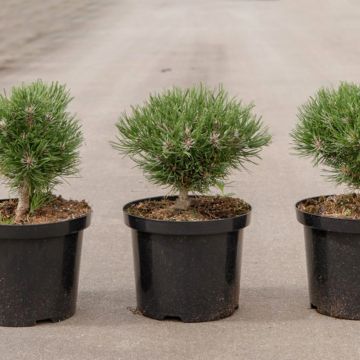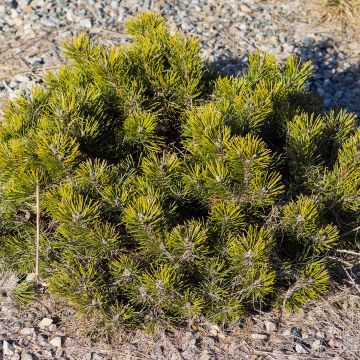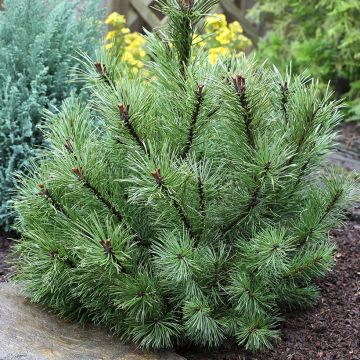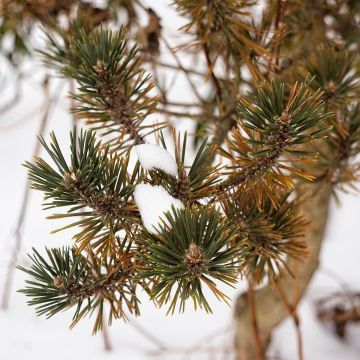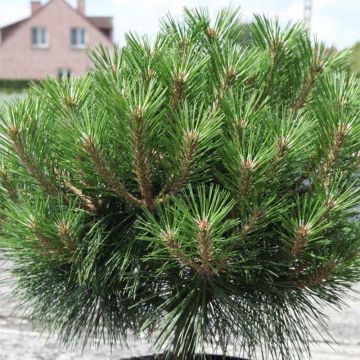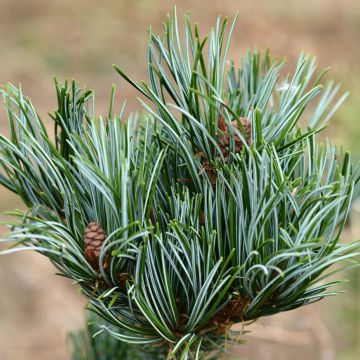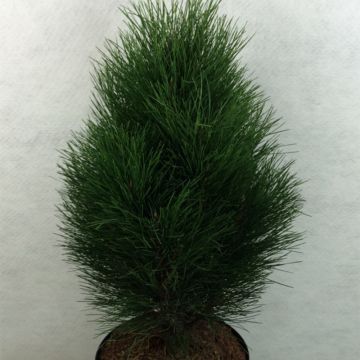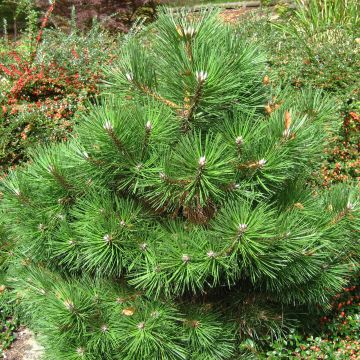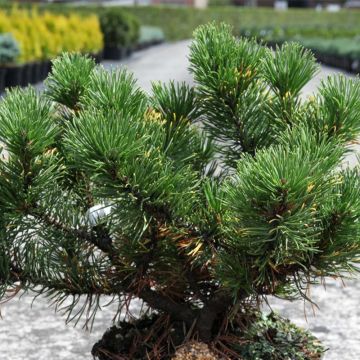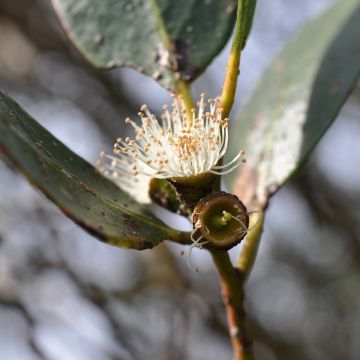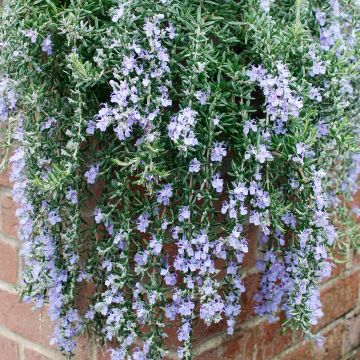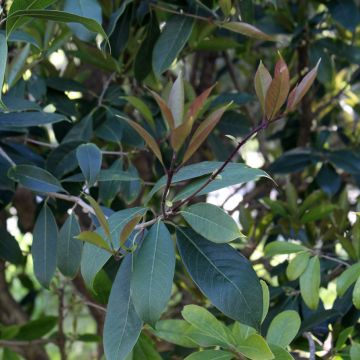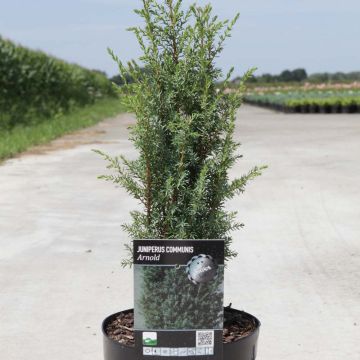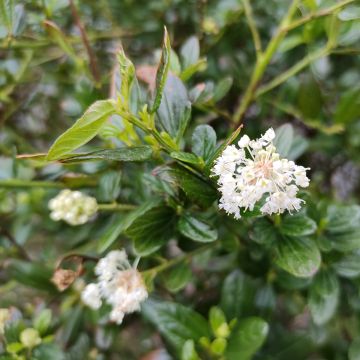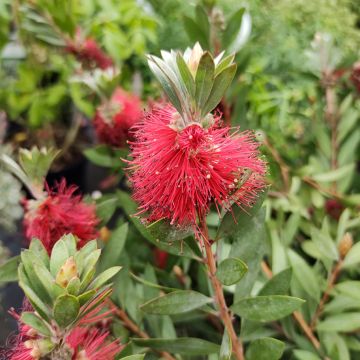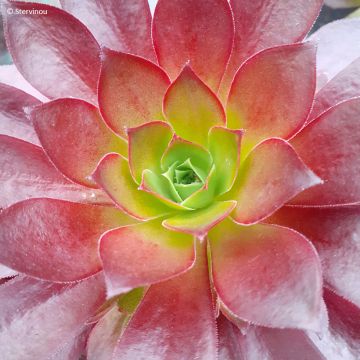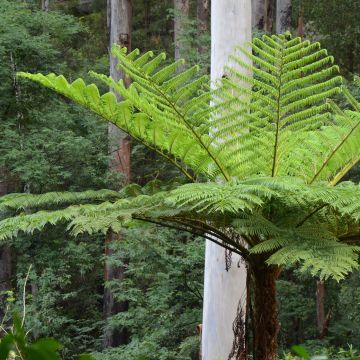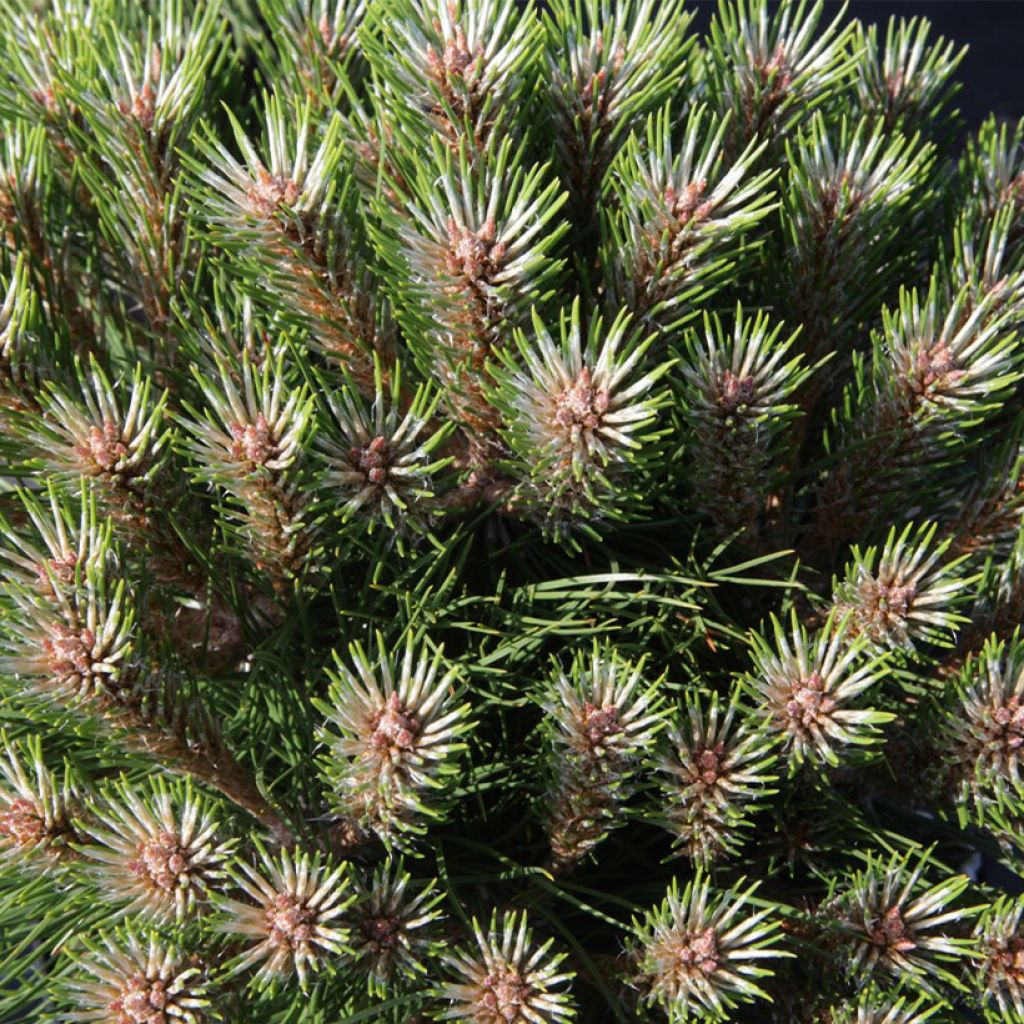

Black pine - Pinus nigra Marie Brégeon
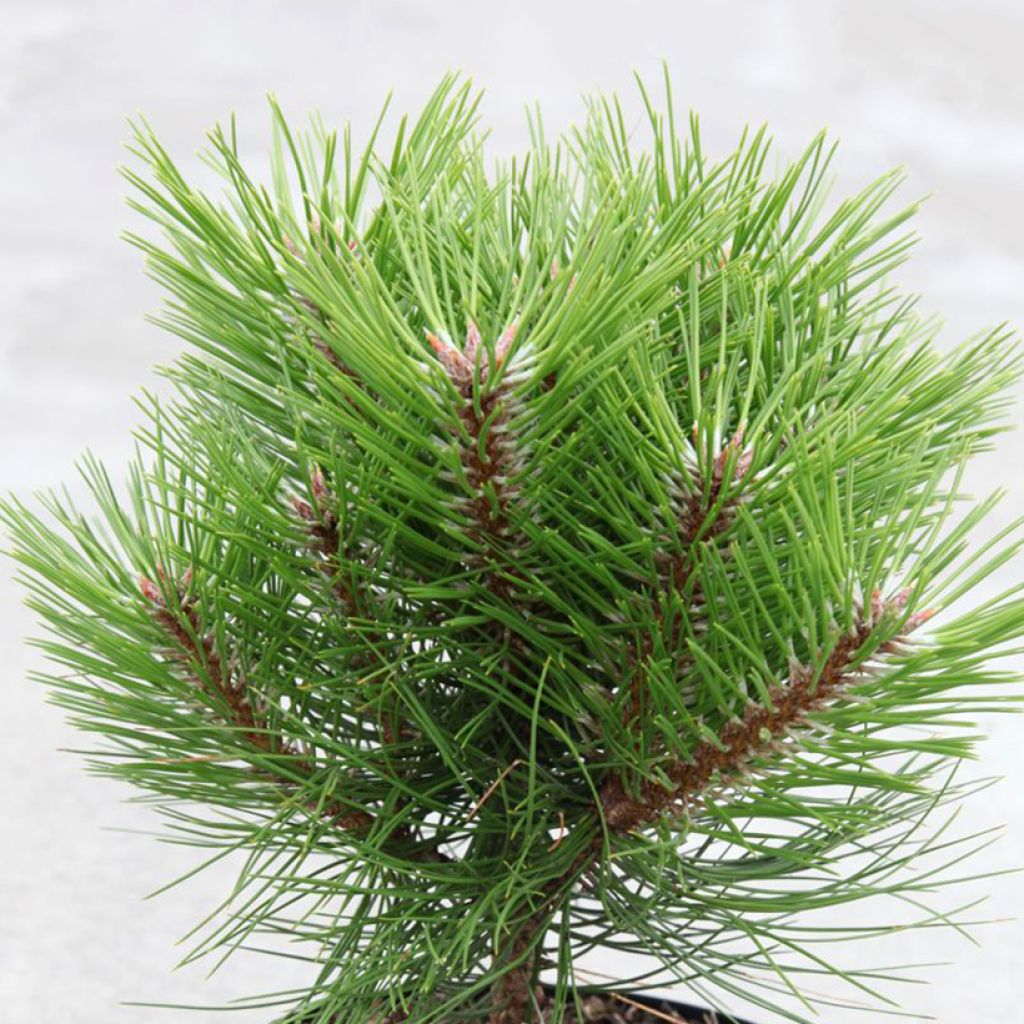

Black pine - Pinus nigra Marie Brégeon
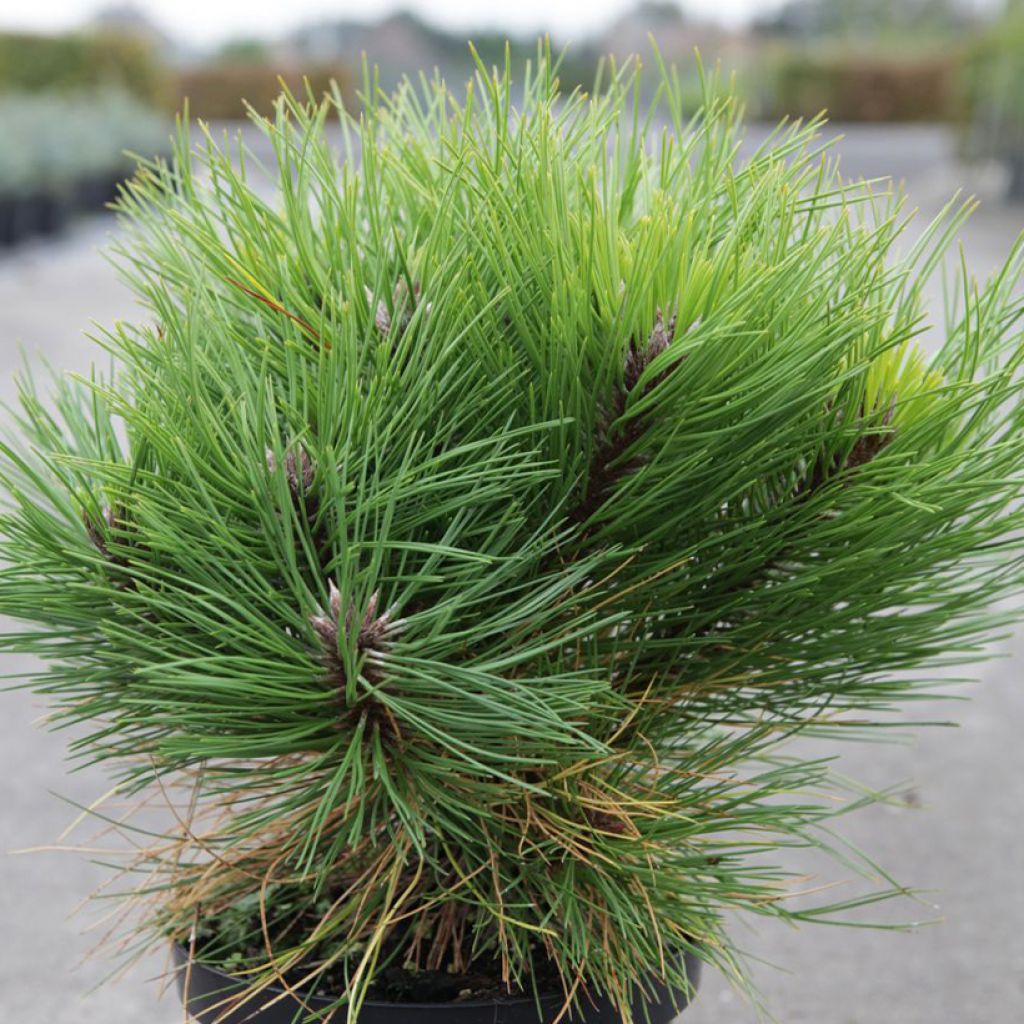

Black pine - Pinus nigra Marie Brégeon
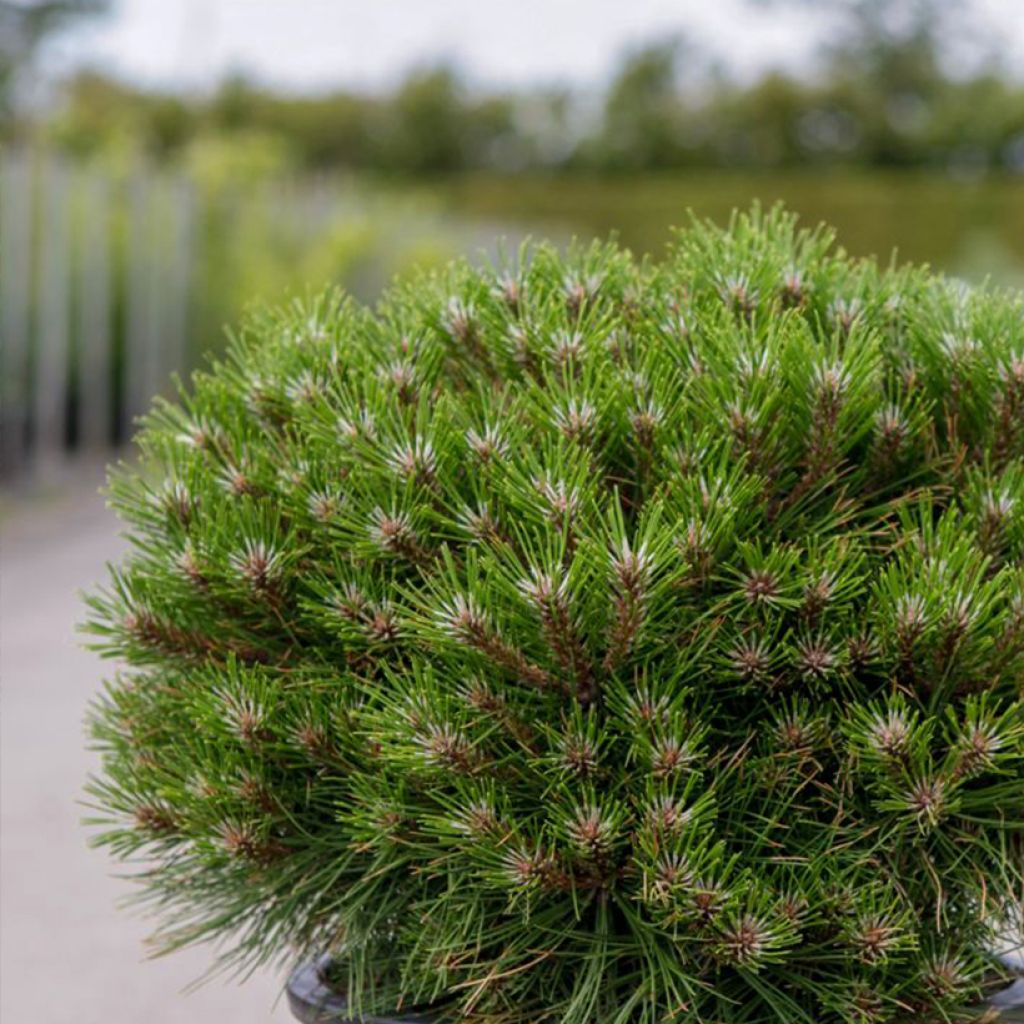

Black pine - Pinus nigra Marie Brégeon
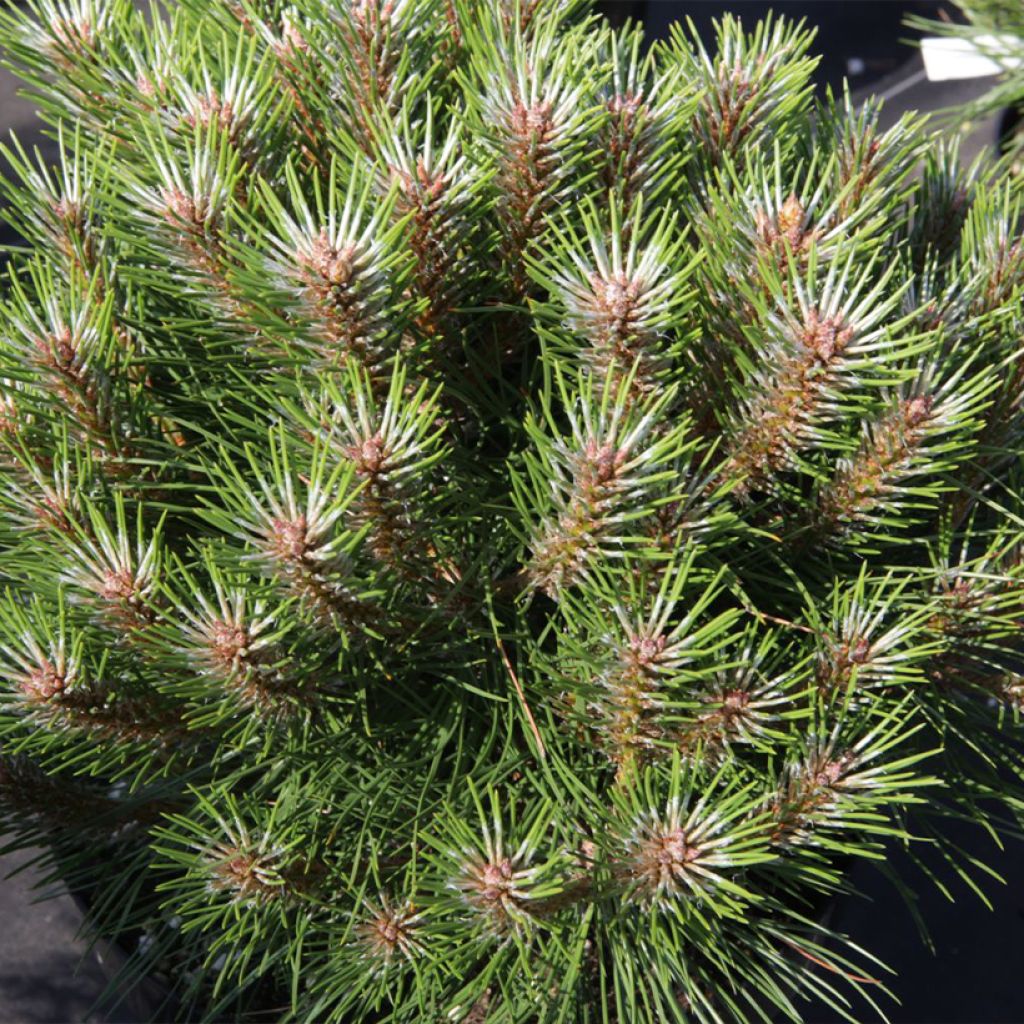

Black pine - Pinus nigra Marie Brégeon
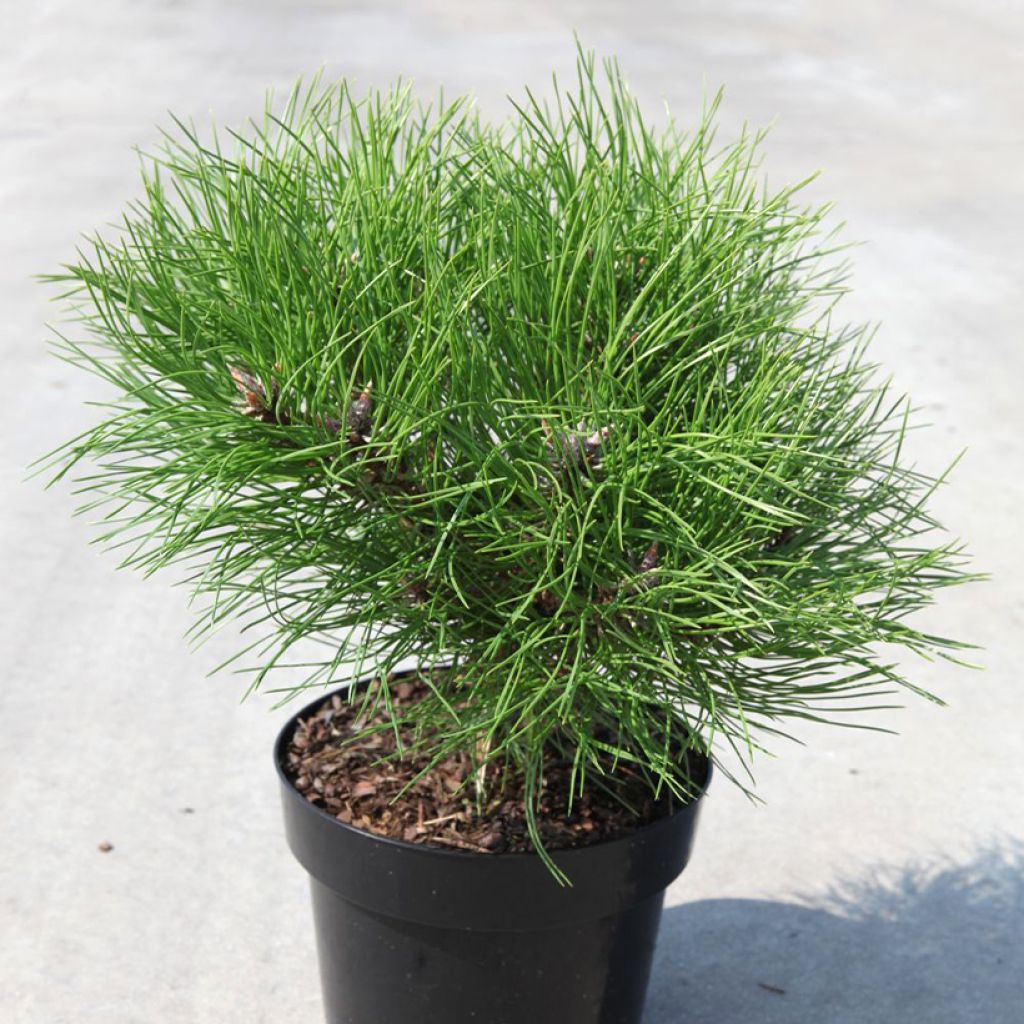

Black pine - Pinus nigra Marie Brégeon
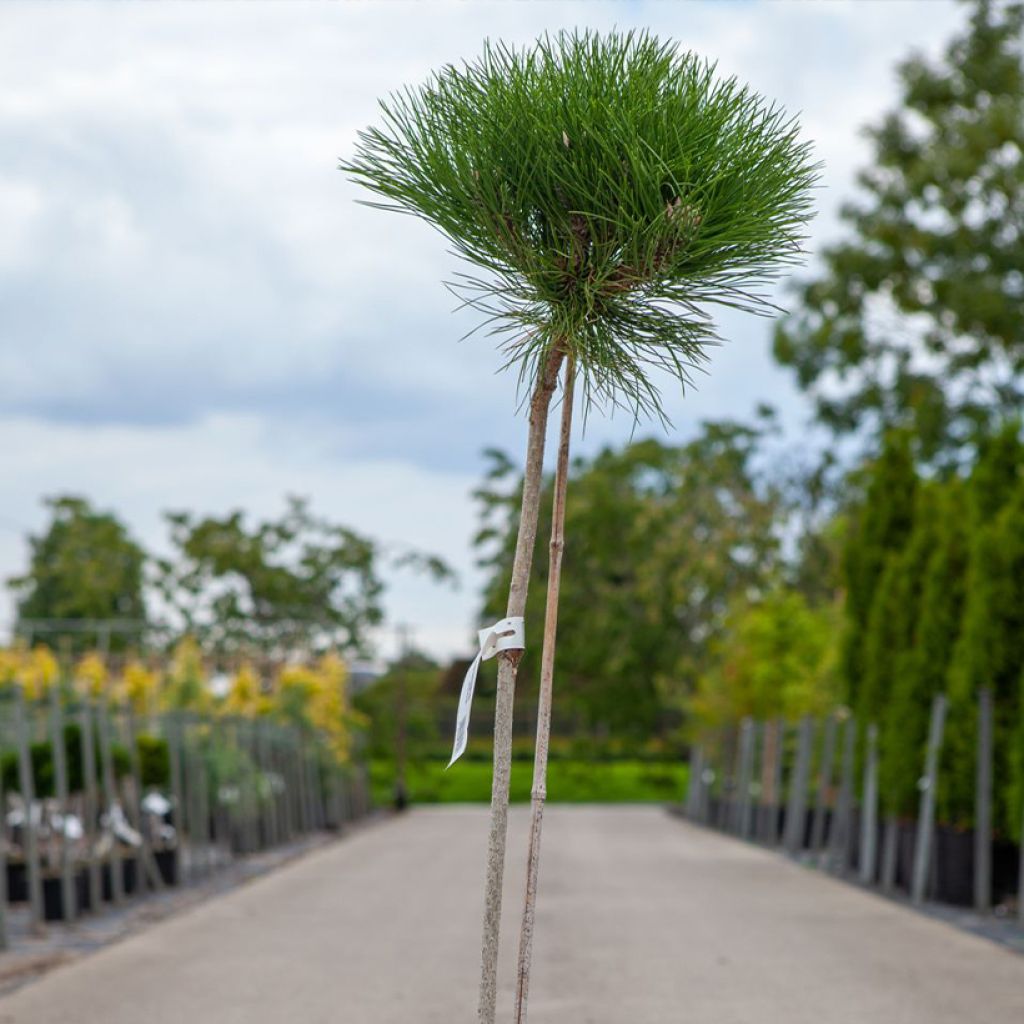

Black pine - Pinus nigra Marie Brégeon
Black pine - Pinus nigra Marie Brégeon
Pinus nigra Marie Brégeon
Black Pine, Austrian Pine
This item cannot be shipped to the selected country
Delivery charge from €6.90
Delivery charge from €6.90
Delivery charge from €6.90
More information
Delivery charge from €6.90
Delivery charge from €6.90
Delivery charge from €6.90
More information
Schedule delivery date,
and select date in basket
This plant carries a 24 months recovery warranty
More information
We guarantee the quality of our plants for a full growing cycle, and will replace at our expense any plant that fails to recover under normal climatic and planting conditions.
From €7.90 for pickup delivery and €6.90 for home delivery
Express home delivery from €8.90.
From €7.90 for pickup delivery and €6.90 for home delivery
Express home delivery from €8.90.
From €7.90 for pickup delivery and €6.90 for home delivery
Express home delivery from €8.90.
Does this plant fit my garden?
Set up your Plantfit profile →
Description
Pinus nigra 'Marie Brégeon' is a dwarf selection of Austrian pine perfectly suited to small spaces, rock gardens, and container gardening. With its beautiful naturally compact, rounded, and regular habit and dense foliage, it is a decorative conifer that requires no pruning and remains attractive throughout the year. This miniature shrub is easy to grow. Highly cold-resistant, it thrives in sunny locations with well-draining soil that is not too clayey. It adapts well to most soil types, from moist to dry, and is wind-resistant. It is a valuable addition to contemporary or Japanese-style gardens.
The Pinus nigra, also known as Austrian pine or simply Black pine, is an evergreen conifer belonging to the Pine family. It is native to central and southern Europe, from Spain to Crimea, as well as Asia Minor, Cyprus, and sporadically in the Atlas Mountains. In its natural habitat, it reaches or exceeds 35m (114.8ft) in height, with an open conical shape and dense crown. It is a hardy species, well adapted to warm temperate climates and chalky or clayey soils. Once established, it has excellent drought resistance during summer.
The 'Marie Brégeon' variety is relatively new, but it has proven its worth. It has a very slow growth rate, only reaching 5 to 9cm (3.5in) per year, and naturally develops a spherical shape. No pruning is necessary to maintain its charming ball-like habit. When mature, it reaches 50 to 60cm (23.6in) in all directions, forming a dense mass of foliage. Its needles, arranged in pairs, are 6 to 10cm (3.9in) long and have a relatively light green colour. As they age, they slightly spiral. They may turn slightly yellowish in winter, which is normal. The small, pointed buds are grey. An important advantage of this miniature conifer is that it does not produce resin, so it can be planted in a pot on a balcony without fear of marking. This pine is hardy down to -20°C (-4°F) or even lower.
The 'Marie Brégeon' Black pine is a perfect fit for themed gardens, whether contemporary for its architectural habit, Japanese for its natural bonsai-like appearance, or rock gardens where its compact size fit well. It can be paired with other small-sized conifers with colourful foliage to create attractive scenes all year round. Golden forms make excellent companions, such as the Golden Tuffet Canadian Thuja or the sculptural Chamaecyparis obtusa Rashahiba. Glaucous conifers also create beautiful contrasts, such as the Baby Blue Sawara Cypress with its well-defined pyramidal habit or the delightful Blue Star Juniper with its small blue-silver needles.
This miniature conifer is also excellent when planted in a pot to enhance a terrace or even a balcony, thanks to its small size.
This miniature pine is a relatively recent selection (2000) by Henri Brégeon in Renens, Switzerland (near Lausanne). It is part of a series of conifers dedicated to different family members ('Pierrick Brégeon', 'Gaëlle Brégeon'). This breeder, who certainly values family, is also responsible for the heather Erica x darleyensis 'Aurélie Brégeon'.
Black pine - Pinus nigra Marie Brégeon in pictures
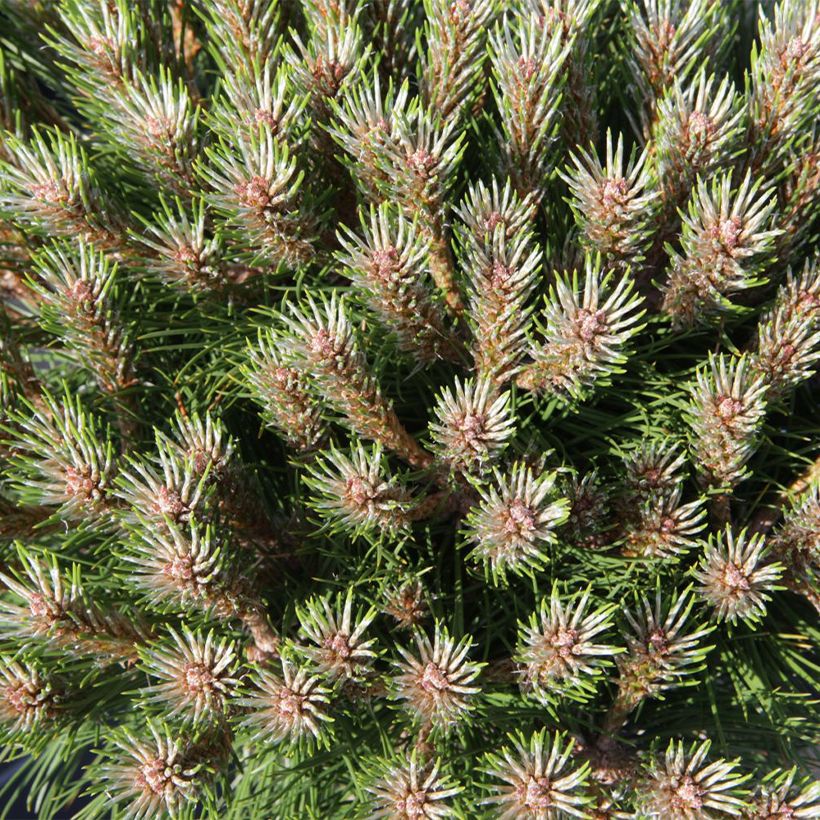

Plant habit
Foliage
Botanical data
Pinus
nigra
Marie Brégeon
Pinaceae
Black Pine, Austrian Pine
Cultivar or hybrid
Other Pinus - Pine
View all →Planting and care
The Pinus nigra 'Marie Brégeon' can be planted from September to November and from February to April in all types of soils, except those that are too clayey. A slightly acidic humus-rich soil is most suitable, but it will also grow in neutral or moderately chalky, moist to dry soil. However, it requires a sunny exposure to develop well.
Soak the root balls well before planting. Optionally, add organic fertiliser to the planting hole and water generously in the first years, and in case of prolonged drought. You can apply a special conifer fertilizer every year in April and weed the soil in summer, as well as apply mulch on the soil surface to retain moisture. Once well-rooted, this hardy conifer can withstand summer drought.
This miniature pine (hardy up to -20°C (-4°F) at least) does not need pruning, it naturally grows in a beautiful regular spherical shape.
Planting period
Intended location
Care
This item has not been reviewed yet - be the first to leave a review about it.
Similar products
Haven't found what you were looking for?
Hardiness is the lowest winter temperature a plant can endure without suffering serious damage or even dying. However, hardiness is affected by location (a sheltered area, such as a patio), protection (winter cover) and soil type (hardiness is improved by well-drained soil).

Photo Sharing Terms & Conditions
In order to encourage gardeners to interact and share their experiences, Promesse de fleurs offers various media enabling content to be uploaded onto its Site - in particular via the ‘Photo sharing’ module.
The User agrees to refrain from:
- Posting any content that is illegal, prejudicial, insulting, racist, inciteful to hatred, revisionist, contrary to public decency, that infringes on privacy or on the privacy rights of third parties, in particular the publicity rights of persons and goods, intellectual property rights, or the right to privacy.
- Submitting content on behalf of a third party;
- Impersonate the identity of a third party and/or publish any personal information about a third party;
In general, the User undertakes to refrain from any unethical behaviour.
All Content (in particular text, comments, files, images, photos, videos, creative works, etc.), which may be subject to property or intellectual property rights, image or other private rights, shall remain the property of the User, subject to the limited rights granted by the terms of the licence granted by Promesse de fleurs as stated below. Users are at liberty to publish or not to publish such Content on the Site, notably via the ‘Photo Sharing’ facility, and accept that this Content shall be made public and freely accessible, notably on the Internet.
Users further acknowledge, undertake to have ,and guarantee that they hold all necessary rights and permissions to publish such material on the Site, in particular with regard to the legislation in force pertaining to any privacy, property, intellectual property, image, or contractual rights, or rights of any other nature. By publishing such Content on the Site, Users acknowledge accepting full liability as publishers of the Content within the meaning of the law, and grant Promesse de fleurs, free of charge, an inclusive, worldwide licence for the said Content for the entire duration of its publication, including all reproduction, representation, up/downloading, displaying, performing, transmission, and storage rights.
Users also grant permission for their name to be linked to the Content and accept that this link may not always be made available.
By engaging in posting material, Users consent to their Content becoming automatically accessible on the Internet, in particular on other sites and/or blogs and/or web pages of the Promesse de fleurs site, including in particular social pages and the Promesse de fleurs catalogue.
Users may secure the removal of entrusted content free of charge by issuing a simple request via our contact form.

































